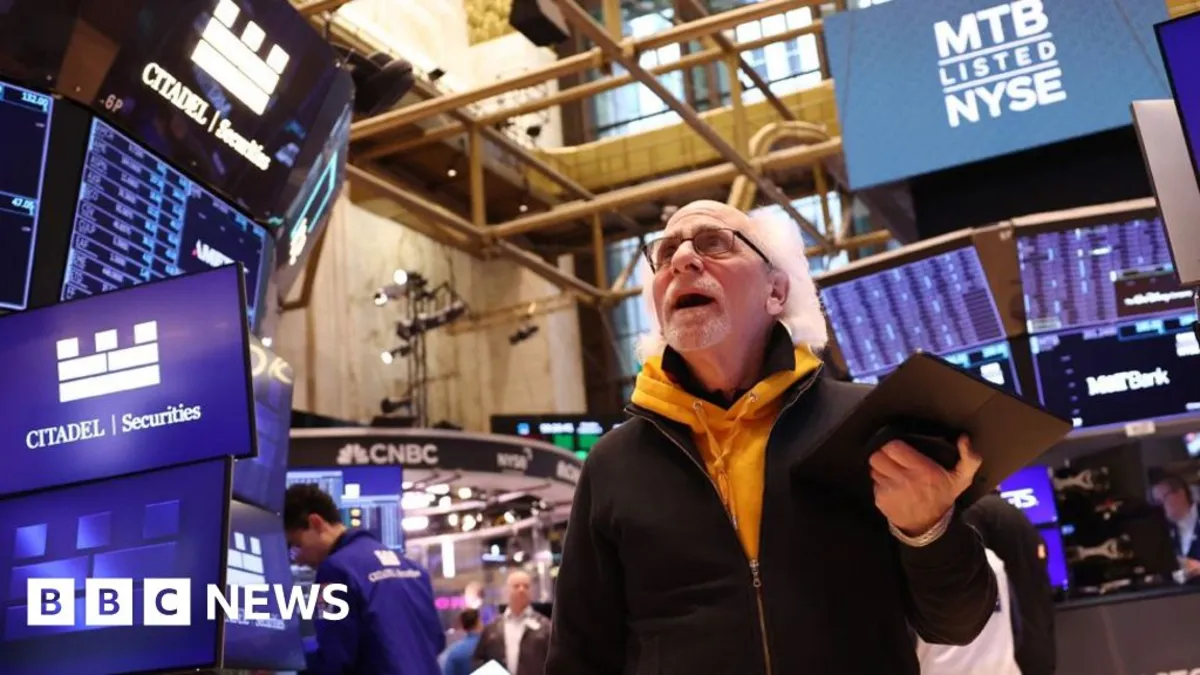
In a significant move that has reverberated across the globe, stock markets worldwide experienced a sharp decline following the announcement of new tariffs by President Donald Trump on imports from China, Canada, and Mexico. The US President has imposed a hefty 25% tariff on goods entering from Canada and Mexico, along with a 20% tariff on imports from China. This sudden escalation in trade tensions has caused concern among investors and economists alike, leading to fears of a potential full-blown trade war.
The implications of these tariffs were immediate, with the three major stock market indexes in the US experiencing significant losses. On Monday, the Dow Jones closed down by 1.5%, while the S&P 500 fell by 1.8%. The negative sentiment continued into Tuesday, as the Nikkei 225 index in Asia dropped by 1.2%, and China's Hang Seng Index saw a decrease of 0.3%. In the UK, the FTSE 100 index also opened sharply lower, mirroring the downward trend observed in major European stock exchanges, including Germany and France.
In response to President Trump's tariffs, both Canada and China have announced their own import taxes on US goods. Canadian Prime Minister Justin Trudeau emphasized that Canada is responsible for less than 1% of the fentanyl entering the US and has retaliated with its own 25% tariffs on approximately $150 billion worth of US products. Meanwhile, China has implemented countermeasures, including 10-15% tariffs on various US agricultural goods, such as wheat, corn, beef, and soybeans. Mexico is also expected to announce its response soon, further escalating the trade tensions between these nations.
The imposition of tariffs is designed to protect domestic industries from cheaper competition abroad, as well as to generate additional tax revenue for the US government. However, experts warn that such measures can have detrimental effects on both consumers and businesses. Shoppers may face increased prices as businesses pass on the cost of tariffs, leading to a reduction in choices available in the market. Additionally, tariffs often provoke retaliation from targeted countries, which can hinder domestic companies looking to export their goods.
Andrew Wilson from the International Chamber of Commerce characterized the recent tariff changes as the "biggest effective increase in US tariffs since the 1940s," highlighting the severe economic risks associated with these measures. He noted that Yale University has projected potential costs of around $2,000 per US household in 2023 due to the new tariffs. Ella Hoxha, head of fixed income at Newton Investment Management, added that consumers are likely to see short-term price increases as companies adjust to the new economic landscape.
The situation presents a considerable challenge for British businesses, especially given the historical ties between the US and the UK. Chris Torrens, vice president of the British Chamber of Commerce in China, expressed concerns about the potential dismantling of the transatlantic alliance, while also noting a sense of optimism regarding strengthening UK-China relations. As the global economy braces for the repercussions of these tariffs, businesses and consumers alike are watching closely how the situation unfolds.